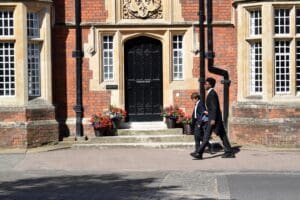
More than 50 private schools across England have announced closures so far this year, following the introduction of Labour’s 20% VAT on school fees in January 2025.
The policy, aimed at raising funds for public services, has hit school budgets and family finances hard, with many parents now unable to afford private education. The impact is being felt across the sector, including prep schools, sixth-form colleges, and specialist schools supporting pupils with special educational needs (SEN).
According to new analysis, at least 54 independent schools have closed or confirmed plans to close since the start of the year—prompting concerns over a growing crisis in the private education sector.
“We remain concerned about children falling through the cracks as specialist schools are threatened or become out of reach for the parents who have depended on them,” said Julie Robinson, Chief Executive of the Independent Schools Council told The Times.
Among the affected schools are:
• Moorlands School, a century-old independent in Leeds, which cited VAT and rising costs.
• Fulneck School in Pudsey and Queen Margaret’s School for Girls in Escrick, York.
• Park Hill School in Kingston and Falcons School in Putney, both in Southwest London.
Sector leaders warn that the closures are now putting pressure on local state schools, as displaced pupils seek new places. In Kent, for example, nearly 100 state school inquiries were made in just 48 hours after Bishop Challoner School announced its closure.
According to the latest Department for Education figures, the number of pupils in independent schools fell to 582,477 in January 2025, down from 593,486 the previous year—a sharper-than-expected decline attributed in part to the VAT change.
While the number of independent schools overall increased from 2,421 to 2,456, insiders say the figure would likely have risen further without the disruption caused by the new tax.
The government has dismissed claims of widespread impact, saying school closures are not unusual.
“Approximately 50 mainstream private schools typically close each year due to a range of reasons,” a DfE spokesperson said.
“Ending tax breaks for private schools will raise £1.8 billion annually by 2029–30, supporting public services and improving outcomes for the 94% of children in state schools.”
They added that secondary school admissions were at their highest satisfaction rate in nearly a decade, despite the increased demand.
In June, a group of parents and independent schools lost a High Court challenge against the VAT policy, which argued that the move was discriminatory, particularly toward pupils with special educational needs.
Independent schools currently educate over 100,000 children with SEN, raising concerns about how closures could affect this vulnerable group.
Despite this, Education Secretary Bridget Phillipson has defended the measure, saying the revenue will fund 6,500 new teachers and a wide range of state school improvements.
However, some have noted mixed messages, after Prime Minister Keir Starmer suggested on social media that the funds could also be used to address housing shortages, prompting questions over how the new revenue will be allocated.
As families reassess education choices amid rising costs and uncertainty, the independent sector faces a period of turbulence, with some analysts warning that closures could continue throughout 2025.
Critics of the policy have called for more targeted relief for SEN schools and smaller providers that serve specialist needs, while supporters argue that levelling the tax system is a step toward funding a fairer and more accessible public education system.
Read more:
More than 50 private schools close as Labour’s VAT policy hits sector







